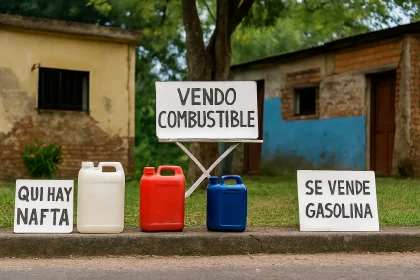UTE cuts off Tether's supply: Keys to the Tether UTE case
The cryptocurrency company Tether has been without power in Uruguay since July 25, when UTE decided to suspend service due to nonpayment and overstaying its guarantee. The measure affects facilities linked to projects the company was developing in the departments of Flores and Florida.
According to a journalistic investigation published by Búsqueda and replicated by other media outlets, the shutdown occurred after the accumulated debt exceeded the guarantee posted by the company; the amount owed is around US$4.8–5 million, not including fines and surcharges. This balance may have motivated the state-owned company's operational decision.
The company, which operates through a local subsidiary called Microfin, had entered into negotiations with the public utility to define the terms of a possible new facility and a tariff reduction, according to sources cited by the news outlet. In this context, payments were cut off, and financial claims were combined with technical discussions about rates and guarantees.
Official sources and the state agency itself explained that the interruption of supply was due to administrative reasons: when the debt exceeds the guarantee amount, the UTE can proceed with the cutoff to protect collective assets. In the present case, the accumulated amount and the successive notifications would not have been sufficient to resolve the dispute.
The magnitude of the debt and Tether's status as a significant player in local projects raised questions about the economic and regulatory impact. Planned projects and employment associated with these ventures were put on hold while negotiations between the parties progress, including the possibility of renegotiating the tariff and updating guarantees.
The presence of public figures on corporate boards added political heat to the case: former Senator Juan Sartori is among the names linked to the company, generating repercussions in political and media circles. This information intensified interest in the scope and oversight of the investments.

For UTE, the episode underscores the tension between applying uniform collection rules and maintaining relationships with large industrial or strategic clients. From the perspective of the electricity company, maintaining collateral to cover high-consumption supplies is a condition of financial prudence; from the perspective of the private investor, however, tariff negotiation and legal certainty are central elements in investment decisions.
The case also raises questions about the regulation of energy consumption in intensive activities, such as cryptocurrency mining, and the country's ability to attract projects that demand competitive rates without jeopardizing the financial stability of the public service. Industry analysts warn that coexisting with high-consumption projects requires clear rules and oversight mechanisms.
What's next? Alternatives range from a payment agreement and gradual restoration of supply to legal proceedings or the pursuit of additional guarantees. In the meantime, local authorities and the company will continue discussions to try to prevent the dispute from escalating and affecting suppliers or the community.
The Tether UTE episode serves as a case in point: it places the arrival of large-scale energy-intensive crypto projects under political, regulatory, and technical strain. How the situation is resolved will set the roadmap for future investors looking to Uruguay as a regional platform.


















